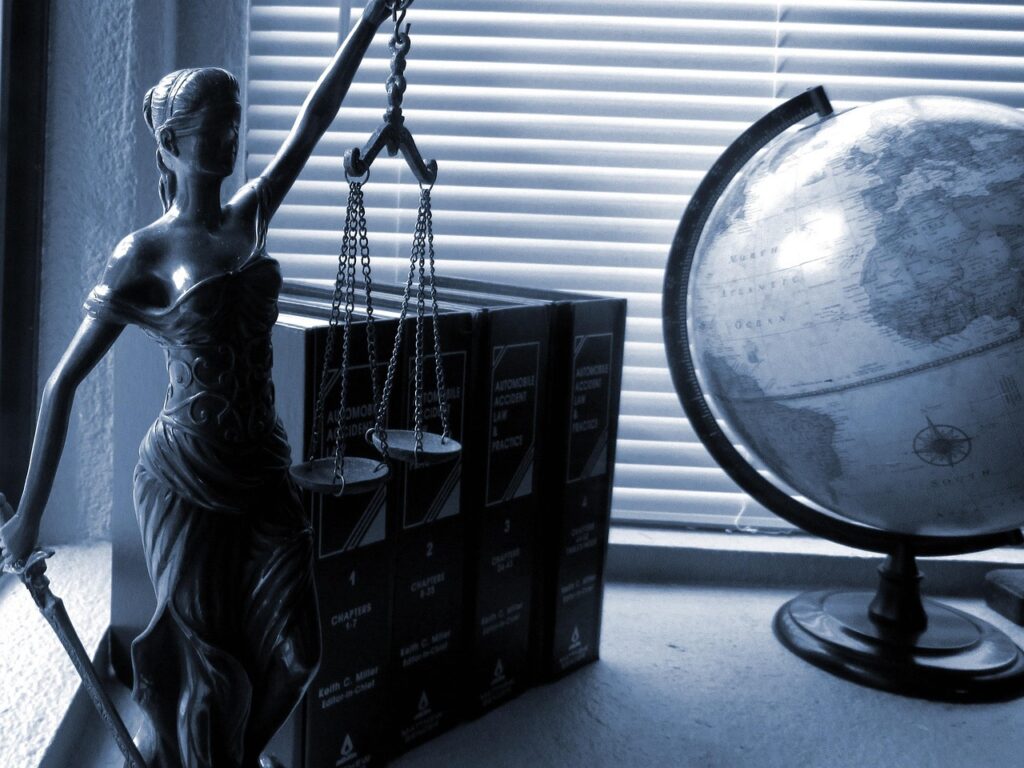Published On: October 13th 2025
Authored By: Sahana Mirji
Karnataka State Law University, Hubballi
Abstract
The Uniform Civil Code (UCC), envisaged under Article 44 of the Indian Constitution, seeks to replace religion-based personal laws with a common legal framework governing marriage, divorce, inheritance, and adoption. Advocates view it as essential for promoting equality, gender justice, and national integration, while critics argue that it undermines religious freedom and cultural diversity. Judicial pronouncements in Shah Bano and Sarla Mudgal have repeatedly emphasized the need for uniformity, yet political and social resistance has delayed its implementation. This article examines the legal and social implications of the UCC, addressing constitutional tensions, judicial perspectives, and societal concerns, and concludes that the UCC is both a constitutional necessity and a social reform that India can no longer postpone.
Introduction
India is a pluralistic country where multiple religions and communities coexist with distinct cultural practices and personal laws. These personal laws regulate matters such as marriage, divorce, maintenance, succession, and adoption. While criminal law and many aspects of civil law are uniformly applicable across the country, personal laws remain fragmented, rooted in religious texts and traditions. This diversity, though reflective of India’s composite culture, often leads to inequality, particularly gender-based discrimination.
The framers of the Constitution foresaw the need for a Uniform Civil Code (UCC) and incorporated it in Article 44 of the Directive Principles of State Policy (DPSP), stating: “The State shall endeavour to secure for the citizens a uniform civil code throughout the territory of India.” Although not enforceable, Article 44 embodies the constitutional vision of equality and secularism in private affairs of citizens.
The UCC has long been one of the most debated issues in Indian constitutional law. Supporters view it as indispensable for the realization of the principles of Articles 14, 15, and 21, while opponents regard it as a threat to religious freedom guaranteed under Article 25. Over the years, judicial pronouncements have repeatedly called for the adoption of the UCC, yet political hesitation and societal sensitivities have kept it on hold.
This article critically examines the legal and social implications of introducing a UCC in India, considering constitutional provisions, judicial interpretations, gender justice, federal concerns, and societal challenges, and concludes with the argument that the time has come for India to implement the UCC in a phased and inclusive manner.
Constitutional and Legal Dimensions
- UCC as a Directive Principle
Article 44 places the UCC within the framework of the Directive Principles. Though not enforceable in courts, the DPSPs are fundamental in the governance of the country and guide legislative policies. As Dr. B.R. Ambedkar observed in the Constituent Assembly, personal laws must eventually give way to uniformity in order to secure equality and justice for all citizens.[1]
However, the framers also recognized the sensitivity of personal laws and hence refrained from making Article 44 justiciable. This has led to a continued tension between constitutional ideals and political realities.
- Fundamental Rights vs. DPSPs
The debate around the UCC often revolves around the conflict between Article 25 (freedom of conscience and religion) and Article 44. The crucial question is whether personal laws are an essential part of religion or whether they fall within the secular domain of law. The Supreme Court has clarified that while freedom of religion is protected, practices that run counter to constitutional principles of equality and justice cannot be shielded by Article 25.[2]
- Judicial Pronouncements
Indian courts have consistently highlighted the need for a UCC:
- Ahmed Khan v. Shah Bano Begum (1985): The Supreme Court held that a divorced Muslim woman is entitled to maintenance under Section 125 of the Criminal Procedure Code, irrespective of personal laws, and strongly urged Parliament to frame a UCC.[3]
- Sarla Mudgal v. Union of India (1995): The Court criticized the misuse of personal laws by Hindu men converting to Islam to practice polygamy and reiterated the importance of UCC to prevent such abuse.[4]
- John Vallamattom v. Union of India (2003): The Court struck down discriminatory provisions in Christian personal law, again emphasizing the constitutional vision of uniformity.[5]
These cases establish that the judiciary considers UCC necessary to ensure equality and secularism, but implementation rests with the legislature.
- Gender Justice and Equality
One of the strongest legal arguments for UCC is its potential to eliminate gender inequality embedded in personal laws. For example: Under Hindu law, reforms have ensured daughters’ coparcenary rights in property, yet discriminatory practices persist. Under Muslim law, inheritance rules provide unequal shares for men and women. Although triple talaq has been invalidated, other issues remain. Under Christian law, succession and divorce provisions have also historically disadvantaged women. UCC would harmonize these diverse laws into a framework consistent with Articles 14 and 15, ensuring non-discrimination and equality before law.
Social Implications
- National Integration and Secularism
Proponents argue that UCC would strengthen the principle of secularism by ensuring that all citizens are governed by the same civil laws, irrespective of religion. This would foster national unity and reduce communal tensions arising from perceptions of unequal treatment.
- Preservation of Diversity
Opponents fear that a UCC may erode India’s rich cultural diversity and impose majority norms upon minorities. For many communities, personal laws are deeply intertwined with religious identity, and any attempt to alter them is seen as interference with faith. Thus, the challenge lies in drafting a UCC that respects diversity while promoting equality.
- Women’s Rights and Social Reform
Historically, social reforms in India such as the abolition of sati, the prohibition of child marriage, and the enactment of the Hindu Code Bills have faced resistance but ultimately advanced social justice. The UCC is seen as the next step in this process, particularly for women’s rights. It would provide uniform protection to women across all religions in matters of marriage, maintenance, and inheritance, empowering them against patriarchal structures.
- Social Polarization
Despite its benefits, UCC remains a politically charged issue. It is often projected as a majoritarian agenda, creating mistrust among minority communities. Unless introduced with wide consultation and sensitivity, UCC may deepen polarization rather than foster unity.
Federalism and Practical Concerns
Personal laws fall under Entry 5 of the Concurrent List, giving both Parliament and State Legislatures the power to legislate. This raises federal concerns regarding the uniformity of laws across states. Goa is often cited as an example of a functioning common civil code, yet even the Goa Civil Code retains certain religious exceptions.
The challenge lies in framing a UCC that balances uniformity with flexibility, possibly through a phased approach, allowing communities and states to adapt gradually.
Several secular countries apply a uniform civil law to all citizens, regardless of religion. However, India’s situation is unique because of its unparalleled religious and cultural diversity. The Goa Civil Code is often presented as a successful model within India itself, demonstrating that uniformity is possible without completely erasing cultural practices.
The Way Forward
Introducing a UCC requires careful balancing of constitutional ideals and social realities. Some possible approaches include:
- Gradual and Consultative Reform: Begin with gender-just reforms within personal laws, eventually converging into a UCC.
- Phased Implementation: Start with optional codes or uniformity in specific areas such as marriage registration and adoption.
- Inclusive Drafting Process: Involve religious leaders, women’s groups, and civil society in the drafting process to ensure legitimacy and acceptance.
- Awareness and Education: Create public awareness about the benefits of UCC for equality, justice, and national integration.
Conclusion
The Uniform Civil Code is not merely a constitutional aspiration but a pressing social necessity. Fragmented personal laws perpetuate inequality, particularly against women, and undermine the secular character of the nation. Judicial pronouncements have repeatedly highlighted the urgency of uniformity, but legislative inaction has delayed reform. While concerns of cultural diversity and religious freedom are legitimate, they cannot override the constitutional promise of equality and justice. Just as earlier social reforms faced resistance but ultimately transformed Indian society, the UCC represents the next step toward a more equitable and integrated nation. Therefore, it is both legally and socially imperative that India introduces a well-drafted Uniform Civil Code one that harmonizes equality with diversity and ensures that every citizen, irrespective of religion, enjoys the same rights and protections under civil laws.
References
[1] Constituent Assembly Debates, Vol. VII, 1948–49.
[2] Commissioner, Hindu Religious Endowments v. Sri Lakshmindra Thirtha Swamiar of Shirur Mutt, AIR 1954 SC 282.
[3] Mohd. Ahmed Khan v. Shah Bano Begum, 1985 SCR (3) 844
[4] Sarla Mudgal v. Union of India, (1995) 3 SCC 635.
[5] John Vallamattom v. Union of India, (2003) 6 SCC 611




